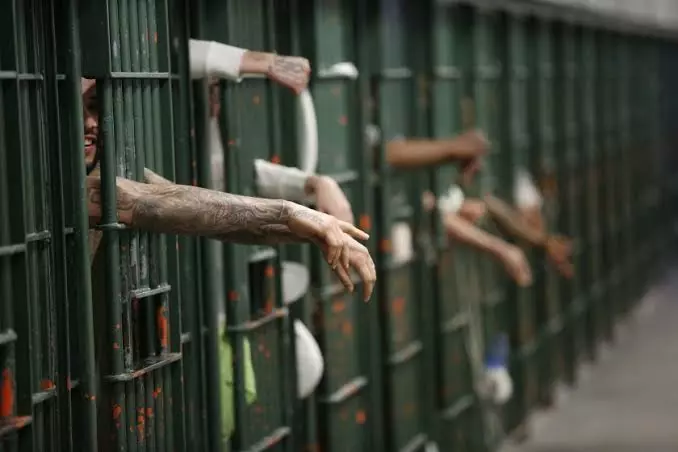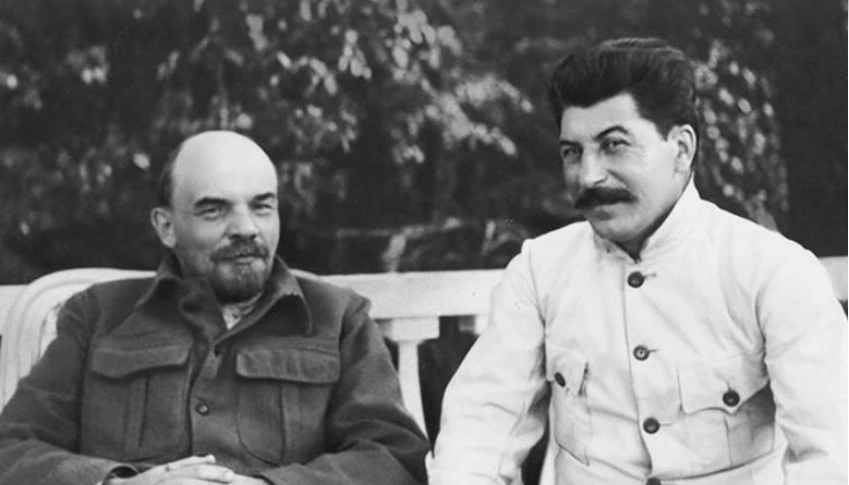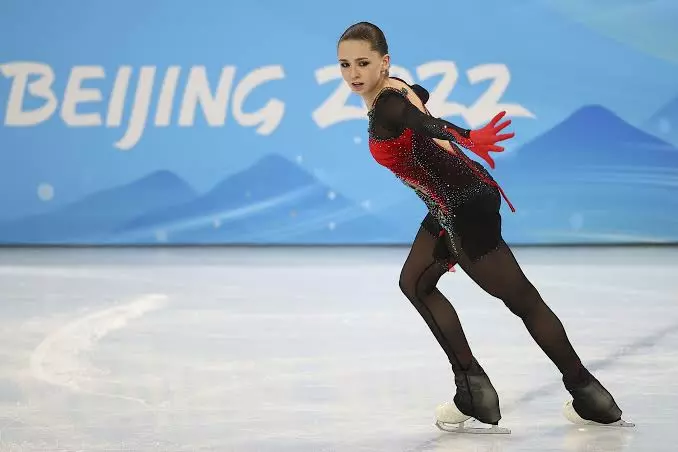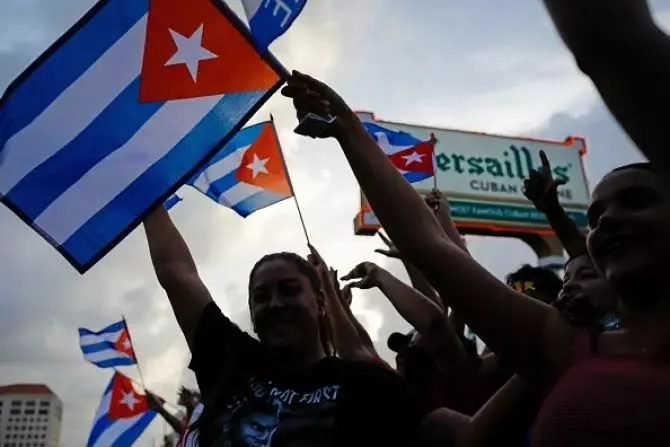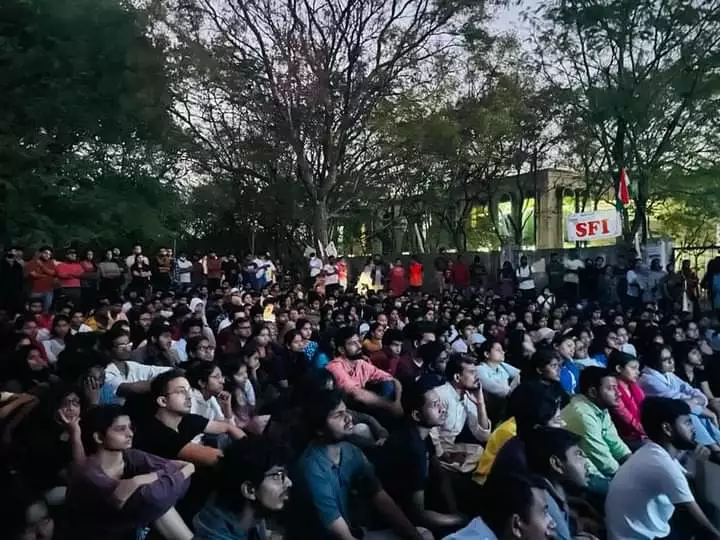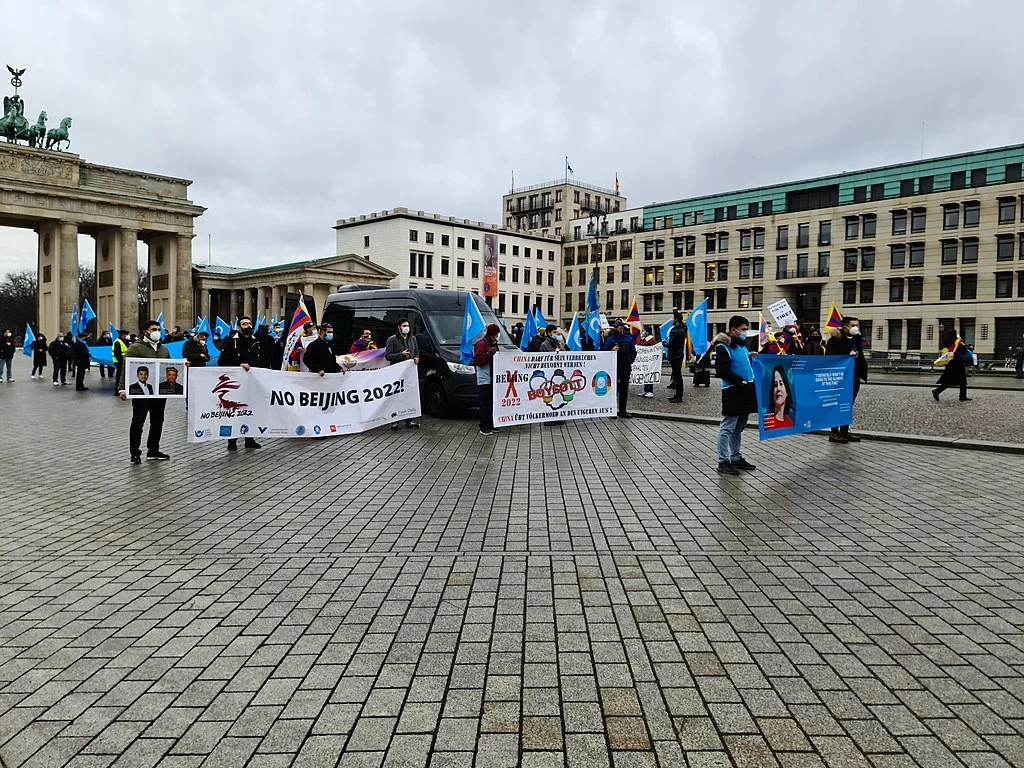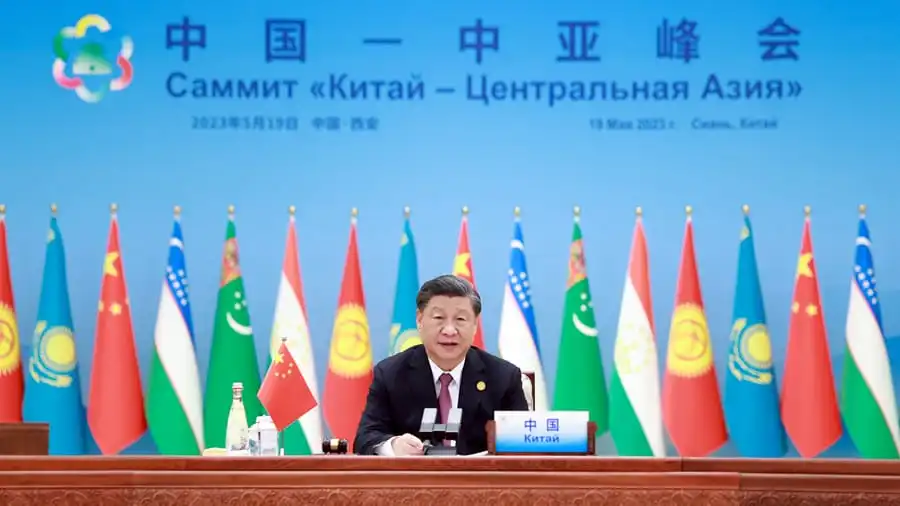Once again Marx has been proven right. Kyle Rittenhouse's verdict shows that the criminal justice system indeed is designed to protect private property. In a country like the US where private property is sacrosanct, this judgement brings no surprise, only ire. It necessitates that we look into the politics of incarceration and prisons, the bulwark of the criminal justice system.
While ‘punishment’ for ‘crimes’ has been around for as long as systematic authority has been within human groups, Incarceration as a systematic method of ‘punishment’ has only been rationalized since the days of early modernism. The modern prison is fundamentally a system invented by and under the capitalist mode of production. Its primary purpose is to address the concerns of the ruling bourgeoisie vis a vis crime and punishment (along with judiciary and police). ‘In punishment and social structure’ George Rousche and Otto Kirchheimer elucidate this argument and further put forth a hypothesis what came to be called the ‘Rousche-Kirchheimer hypothesis’. They argue that the lesser the availability of labour in the market, the better the prison conditions get. They have linked incarceration directly with the market forces under capitalist production. The prison then becomes yet another instrument of bourgeoise exploitation and more specifically a machine to regulate the flow of labour into the free market, while at the same time exploiting the physical labour of those incarcerated. To contextualize their argument, the book was written in the 1930s and actually became the first book to have been published by the Frankfurt institute in the US. Prison was still seen by liberal scholars as an instrumental institution for the greater good of the society. Prison was essentially a Benthamite institution. While Thorsten Sellin had earlier laid the foundation of materialist study of the prison system, Rousche and Kirchheimer take the method further and argue for a historically grounded study of prison systems without giving in to historicist tendencies.

George Rousche begins by stating that punishment as such does not exist, rather only forms of punishment do. So it becomes paramount that we pay close attention to these forms and their continuous shift along with change in the modes of production. During the ancient and early medieval age, repentance was favoured over corporal punishment. Reflection was central to punitive action by authority, contrary to popular notion of archaic brutality. However, come the feudal age, then there is rise in corporal punishment. However, here again the availability of labour population dictated the severity of punishment. During the mercantile period, this was carried over. It was also the period when primitive accumulation was taking place and colonialism was growingly becoming a reality. The advent of capitalism brought about certain fundamental changes to the modes of punishment. Firstly, the prisoners became proletariat. They were engaged in factory work inside prisons as well as manual works outside the confines of the prison such as road construction, railway construction etc. Secondly, more than corporeal punishment, abstract liberal values became targets of punishment; for instance, curtailing freedom became a form of systematic punishment. Michel Foucault would later further conceptualize this theory in his works. This gelled well with the predominant liberal idea that modern times are lesser cruel than that of the era gone by. Fines were carried over from other periods. Prison in fact at a point in history became a for profit production unit. However, thanks to the resistance from the capitalists, prisons as active factories declined. In all these, prison has structurally targeted specifically the people belonging to the lower strata of the society. For instance, since the early days, the richer could get away by paying fines in place of prison sentences. At some point, in Europe the prisoners had to pay for their time in prison. This created a vicious cycle of crime and eventual punishment. In fact, the birth of the modern concept of crime and punishment in correction homes is laced with history of class antagonism. Jean Jacques Rosseau reminded us that the expropriation of science and art and the introduction of property resulted in the creation of artificial inequality. Karl Marx would later conceptualize the expropriation of land and nature itself. Naturally, those who found themselves in the class of the have nots became ‘criminals’ in the sensibilities of the propertied class. In fact, within a capitalist set up, Penal policy responded according to the immediate interest of the ruling class. During the early days of capitalist production, privatization of land was among the most important interest of the bourgeoisie. In a colonial set up, incarceration of those that posed risk to the rule of the colonizer were put behind bars. In extreme cases entire communities were criminalized as fundamentally their way of being clashed with the economic interest of the coloniser. David Arnold in his discussion of the colonial Indian Prison of 19th century mentioned the horrid conditions inside. Initially, the colonial prison resembled a small town with very little order and deplorable living conditions. Later, the Britishers would modernize the Indian prison. This attempt to modernize however came in a direct collision course with pre dominant social systems. Earlier every caste group could prepare their respective meals, now all the prisoners had to dine together. This was naturally unacceptable to the upper caste prisoners. David Arnold sees the ensuing rebellions as the subaltern resisting the empire. This of course is an extremely problematic stance. Arnold seems to have a naïve take on the caste question. The resistance of the upper caste prisoners is not a resistance for justice or equality, it was exactly the opposite. Just the fact that it was directed against the empire does not absolve it off the disgusting roots it stems from. There however is no denying the fact that the colonial prison was an inhuman place. Despite all the talk about prison reforms (till date), meaningful reform is not possible as prison is not an isolated institution from the greater socio-politico-economic structures that society runs on. In State and revolution Lenin had correctly stated that prisons are only a constituent of ‘public power’. Rousche and Kirchheimer argue that the whole point of a prison is that it is a place that ought be worse than the conditions outside. Better living condition inside prison is a paradox.

In the US as well, the colonial prison morphed into a distinct yet similar system of its own. Settler colonial locations like the US and Australia are where prisoners were transported.
Later these colonies would form independent nations and invest in their own prison systems. The notorious contemporary prison in the US is a site of mass incarceration and part of a big industry that profits from incarcerating people. Forms of exploitation like engaging prisoners in factory works though still prevalent, contributes very little. This problem was pointed out and discussed in detailed by Dario Melossi. The prison system has adapted to the immediate concerns of the ruling class, this time under neoliberal set up. In the last 5 chapters of the book that Kirchheimer wrote (as the introduction makes it clear), he supplements and reinforces Rousche’s primary theses. He eloquently sums up the problems of modern prison. However, his focus on the penal policy under fascism in chapter XI is more interesting. During the crisis years of 1920s in Germany, unemployment reach new peaks and prisons were full to the brim. The prisoners begged for work but there was not any, for anyone. Fascism is however an eventuality of capitalism. In crisis under competitive capitalism, society either moves towards revolution or towards fascism. Germany experienced the latter.
Fascist Germany also saw the rise of the moral conviction of ‘racial conscience’. He writes
‘The "racial conscience" has been introduced into the criminal law through the elevation of concepts like "welfare of the people" and "healthy national sentiment" to official normative standards. This process has helped considerably in restricting the judge's freedom of decision’. This rings bells across time and space; read colonial locations and modern American penal policy. Punishment and social structure has its own set of limitation, which book does not?. It is nevertheless an excellent inquiry into the evolution of the modern prison, mainly in Europe and the US. Not just falsifiable empirical study, the book is as much a methodological suggestion. Justice to the George Rousche’s and Kirchheimer’s works is when they’re read as part of a bigger system or method of enquiry (into penal policy and system) and not mistake it for the final dictum.
